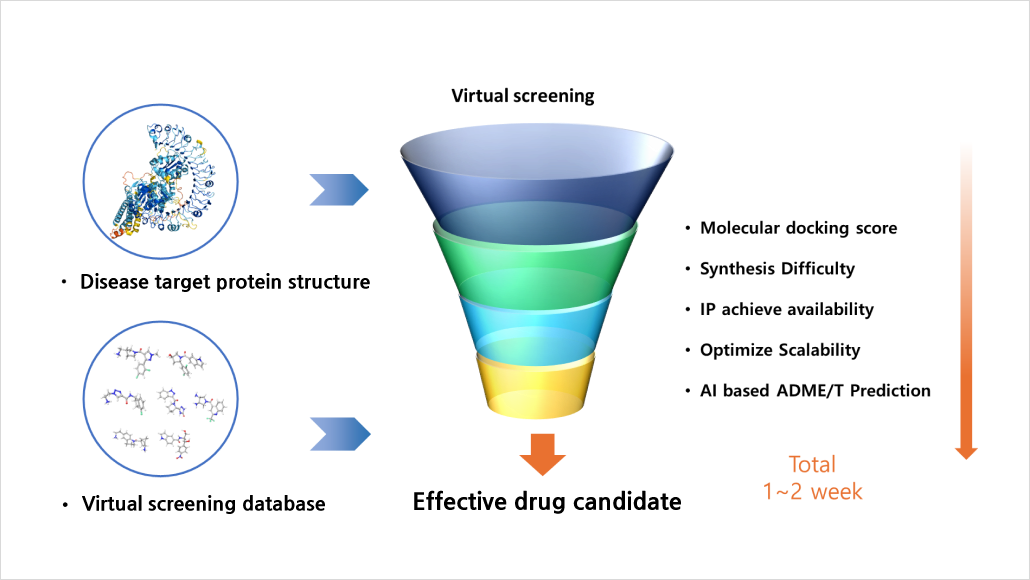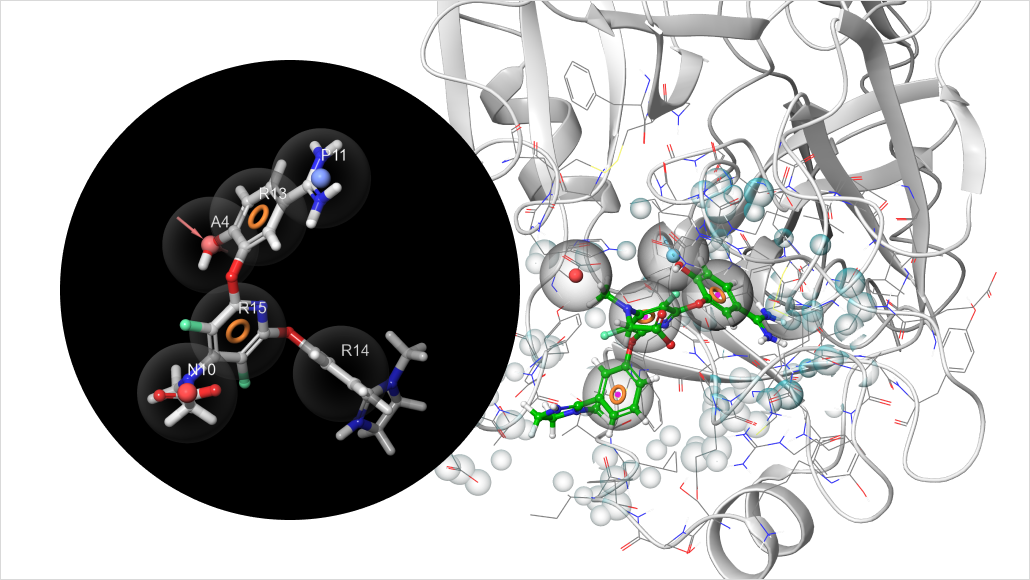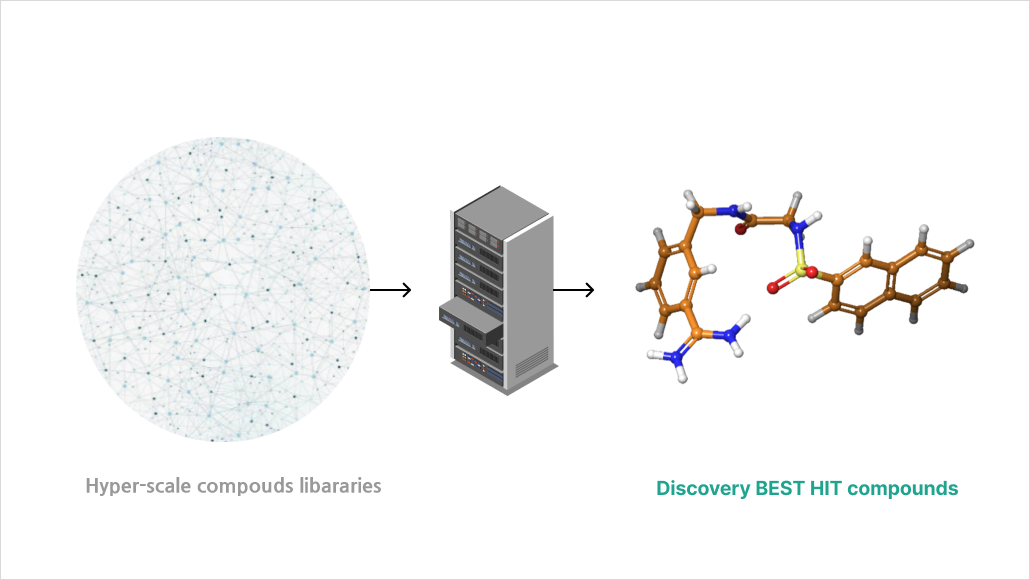Virtual Screening Service
-
Receptor-Based Virtual Screening

Virtual screening uses computer-based techniques to identify potential drug candidates from large compound libraries.
It predicts the binding affinity of a compound to a known drug target.
It can include structure-based or ligand-based screening methods, and is used to evaluate libraries of tens of millions of compounds.
This approach is time- and cost-effective, enabling the faster screening of potential ligands against a target compared to traditional experimental methods.
-
Ligand-Based Virtual Screening

Pharmacophore virtual screening rapidly and efficiently identifies potential drug candidates by analyzing key chemical features using computational methods.
Ligand-based screening methods are faster and more efficient than structure-based screening.
By analyzing the chemical features of effective drugs, this approach identifies novel ligands beyond known compounds.
-
Hyperscale Database Virtual Screening

Ultra-large library screening is applied to libraries containing a much larger number of compounds (often billions or more) than traditional virtual screening.
It uses advanced computing technologies and algorithms to process large amounts of data and enable high-throughput screening.
This method maximizes compound diversity and chemical space, facilitating the discovery of new compounds that traditional screening methods struggle to explore.
It utilizes state-of-the-art computing resources to explore a vast chemical space.
Screening service process
Virtual screening library
Chemical Vendor Library
Enamine screening collection – 4.5M
ZINC15 drug-like library – 11M
ChemDiv screening library – 2M
MolPort screening library – 10M
Other : ASINEX (0.8M), ASICHEM(2.6M), Life chemical(0.6M), OTAVA(6M), Pharrmeks(0.5M), Princetonbio(3M), Zelinsky(0.5M)
FDA approve compounds, Natural chemical library, Chembank library

Hyperscale Library
Enamine REAL compounds library – 48 billion
ZINC15 standard library – 997M
WuXi AppTec GalaXi library – 12B
Chemspace Freedom space library – 5B
OTAVA CHEMriya library - 11.8B





